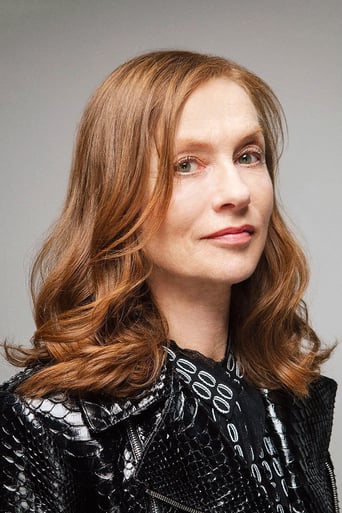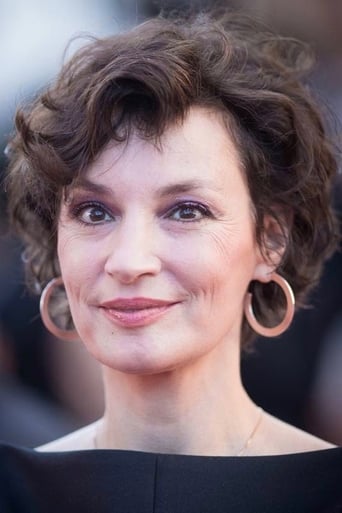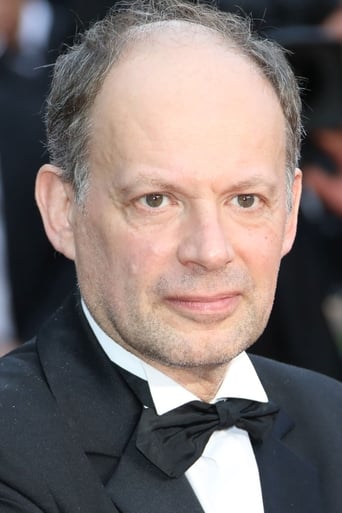Unlimitedia
Sick Product of a Sick System
Megamind
To all those who have watched it: I hope you enjoyed it as much as I do.
Brenda
The plot isn't so bad, but the pace of storytelling is too slow which makes people bored. Certain moments are so obvious and unnecessary for the main plot. I would've fast-forwarded those moments if it was an online streaming. The ending looks like implying a sequel, not sure if this movie will get one
Rexanne
It’s sentimental, ridiculously long and only occasionally funny
gridoon2018
The recently deceased Raoul Ruiz was certainly an extremely idiosyncratic director, whose films did not look like anyone else's. Sometimes his experiments could go disastrously wrong ("That Day"), but other times they were fascinating to follow ("Shattered Image"). I think "Comedy Of Innocence" comes closer to the second category. I like this film....but don't ask me to tell you why! Ruiz comes close to doing for cinema what the "abstract painters" did for their art; he fills the screen with "unexplainable" (as even he himself admits) details (e.g., the rolling dice that always comes out the same) that somehow work even if you don't understand their meaning. In the meantime, the main story of "Comedy Of Innocence" is actually quite straightforward, if you pay attention to it; that doesn't mean it's not extremely weird, though! Both female leads give exceptional performances, but extra praise must go to the little boy - undeniably one of the best child performances of the last decade at least. Watch this film when you're in the mood for something you can't quite describe with words. *** out of 4.
Adam Gai
The late director Raul Ruiz has declared that what interested him when making films was the middle ground between traditional narrative and experimentalism. His movie The Comedy of Innocence (2000) is based in a novel by futurist writer Massimo Bontempelli, The Boy with Two Mothers, and recreates as in an unstoppable nightmare the archetypal fantasy of the child that imagines that his parents are not the real ones. The family lives in a strange Parisian house besieged by the remembrance of a dead incestuous eternal grandfather. The father is frequently absent, and the mother- theater designer- is suddenly refused as such by his nine years old unique son. Another mother, the ideal one that in fantasy every child wants to possess, will appear "really" in the world of the movie and in the video that the child shoots in that world. He harasses alternatively the two mothers with his camera. On his side, the director, perversely too, plays the same game with the spectators, moving the camera menacingly. We are introduced into two houses abundant in statues, paintings, mirrors, that duplicate "reality", and revive in us the ancestral fear before images of resemblance (those obvious elements of cinema) and some inanimate objects that seem to earn life. Ruiz has said in an interview that all his features, and he shot dozens of them, have "film" as their theme. The child uses the camera not only for reproducing but for torturing, and the mothers are ready to collaborate providing that the child will choose just one of them ( see the last scene, for instance). The need of possession and the anguish of abandonment succeed in impregnating each one of the characters, driving them to incredible behavior. The supposed legitimate mother (if there is a legitimate identity in the world of this movie) not only tries to recuperate her son, but to become even the fantasized mother. Ruiz plays convincingly with the impossible until a denouement that dubiously gives resolution to mystery. Like the young nanny who when throwing the dice gets the same results, the picture doesn't cease astonishing the viewers.
chaos-rampant
With this one Ruiz redeems himself well for some of the more hollow stuff he produced in the 90's. It is, as so many times before, a fiction about possible fictions as assembled in the imaginative mind. About various figments of the one mind enacting their roles in a fantasy unfolding as the unfathomable echoes bubbling in some far surface of reality.At first, it seems to be about a child intuitively guided to look for his true face, the true motherly source from which we are all outsourced at birth and to which the biological mother is only the affectionate mask. The kid is miraculously drawn to another mother, tied to the first by the strange coincidence so favored by surrealists.But it soon turns out that we are not with the child in this, rather with the discarded face of the mother. The woman drawn to her reflected image in the eyes of the kid and made whole in it. Two women as one, each the other's surrogate mother, each the surrogate daughter in turn.And then it moves again, starting with a dinner scene that reverses the one that begins the film. Now the characters have switched places, the room is dark. A film-within guides us further, footage captured by the kid in his strolls around the park. There is an imaginary friend who turns out to be real, and a madhouse in the countryhouse where only those admitted can leave at will.Then the mysterious ending suddenly seems to pull everything back into the surface of reality (we can never be sure though). Was after all the kid only the mother's helpful aid (like her brother, Serge, inside the fantasy) in recovering the husband who is away on business (imagined as an inner child, susceptible to allure of the female figure) from the imaginary hands of a deceitfull mistress? It's a fascinating ploy and the overall construct, though occasionally thin, resonates with the illusionary reality of the mind. How we weave portentous narrative around us with us center stage in the myth, what masks we choose to hide behind or let fall. Lots of Oedipus, transported to suburban France as surreal essay into the conundrums of fiction.The device is film noir. The execution is French. Not a bad thing to have, aye?
dyew2
... who establishes himself yet again as one of world cinema's most intriguing contemporary directors. The cast is excellent and the story unfolds with an eerie, graceful and inexorable pull. Particularly fascinating is the innate childishness of brother and sister characters played by Charles Berling and Isabelle Huppert - and to some extent by Jeanne Balibar and Denis Polydades. A creepy meta-thriller that also manages to make interesting comments on parenting and responsibility. On the Wellspring DVD there's also an insightful interview with director Raoul Ruiz, a bit opaque but not surprising given his filmography.





